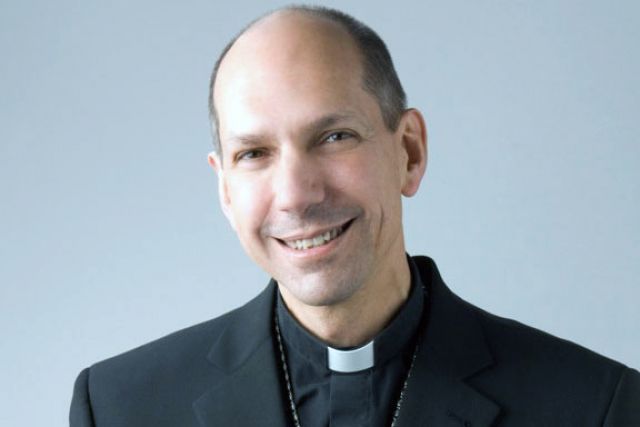He worked seven years for the Pontifical Commission for Promoting Christian Unity in Rome where he co-ordinated Vatican participation in the Week of Prayer for Christian Unity and watched and encouraged official dialogues between the Catholic Church and Anglicans and Methodists. Though now leading one of Western Canada’s most important dioceses, he remains a member of the Vatican’s ecumenical commission, co-chairs the Anglican-Roman Catholic Commission on Unity and Mission, is a member of the Methodist-Roman Catholic International Commission, sits on the Anglican-Roman Catholic Dialogue of Canada and is a member of the Evangelical-Roman Catholic International Consultation.
Almost 30 years of thinking and acting ecumenically has given Bolen more than just the Cross of St. Augustine from the Archbishop of Canterbury. The bishop has also drawn some conclusions about how a Catholic should do ecumenism. In conversation with The Catholic Register during the Week of Prayer for Christian Unity, Bolen laid out his six principles for achieving Church unity:
1. “Through conversation and study we name the extent to which we have a common faith.”
2. “Then we have a responsibility, because it’s the Lord’s will that we be one, that we work toward addressing those areas of difference in some kind of conversation.”
3. “Then, we identify how it’s appropriate and responsible to pray together.”
4. “We identify areas for common witness.”
5. “We identify areas for common mission and try to build lines of ecumenical friendship.”
6. “Where possible, we look to where there are gifts in the other Christian community that we can rightly receive.”
The ecumenical gifts churches offer one another are never entirely new discoveries for the Catholic Church, said Bolen. But there may be aspects of prayer, preaching, Scripture study, liturgy or community life that can be strengthened by the insights and practice of other Christian communities.
Bolen has proposed his Catholic principles for ecumenical dialogue to Orthodox, Anglican and Protestant Christians over the years and has always been well received.
“It’s not a complicated framework,” explained Bolen. “It doesn’t involve negotiation. It doesn’t involve compromise. It involves trying to be faithful to the lead of the Holy Spirit.”


